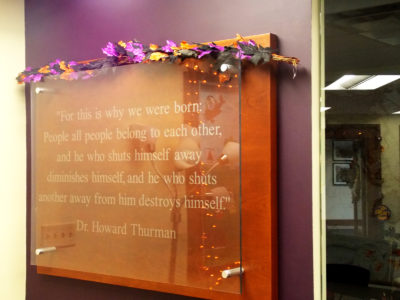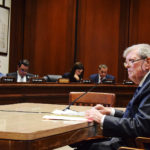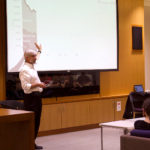
The Howard Thurman Center for Common Ground and the Student Activities Office are preparing to officially launch the Common Ground Fund next semester — an initiative intended to motivate inter-university student collaboration with financial resources.
The fund aims to bring student organizations from across the university together to collaborate with clubs they would not normally interact with, HTC director Pedro Falci said. Collaborative events can range from joint recreational activities to political dialogues.
“[The fund] really is trying to support collaborative efforts where students from disparate backgrounds or interests might do something cool,” Falci said. “If the BU College Republicans want to host a dialogue with the Islamic Society … and they need support or resources, that is a worthwhile proposal for the Common Ground Fund.”
The fund will provide student organizations with financial resources that the Allocations Board — another entity that grants funding to student clubs — might not be able to provide, Falci said.
“It really has to be an original idea where you are collaborating with a group that you usually do not engage with,” Falci said. “It’s not just to get some extra pennies for the program that you do every year.”
The Common Ground Fund Committee, composed of students and faculty, has been working on putting the program together since last summer and is now in the final stages of implementing the program, according to Falci.
HTC assistant director for Thurman Center Networks Julian Cook said the fund embraces HTC’s mission of creating an environment for students to share their perspectives and feel more comfortable discussing sensitive topics.
“We are always having conversations in our center with students, helping them with how to facilitate controversial conversations,” Cook said, “helping them understand what it means to be civil when one is involved in conversations that do become difficult.”
HTC student ambassador Babatunde Alford said by helping students form connections with those who would not otherwise cross paths, the fund will form a more connected campus and in turn, make difficult conversations easier.
“It helps to inspire students to talk more frequently with new people and break down walls or prejudice and stereotypes,” the CAS senior said.
Katherine Cornetta, assistant to the dean of students, said the fund is a part of a broader plan to expand the HTC. The center has not yet established a set monetary budget for the fund, she said.
“We don’t have a set amount [for the fund] yet, and that’s because this is step four in a multi-step plan in the re-invention of the HTC,” Cornetta said. “They have to see how much those are going to cost before they give us a final amount.”
HTC assistant director for arts, service and programs Shari Tumandao, who is on the fund’s committee, said any student organization recognized by the SAO can apply for a grant.
“What we’re really trying to gauge is the genuine intent behind it,” Tumandao said. “There are no loopholes. There are no hoops to jump through.”
Tumandao also noted the flexibility and simplicity of the application.
“If you are invested in the conversations that come out of it and see each other as one community, then it’s a very simple process,” she added.
Although the fund has not yet been instituted, the HTC has funded student group collaborations in the past, Falci said, and its success has motivated the center to set up an official process to do so. For instance, the HTC has helped the Ski and Board Club “make skiing and boarding more inclusive and accessible,” according to its president, Catherine Willis.
Willis explained that in the past, the club reached out to cultural groups on campus and used HTC funds to make their trips more open and affordable.
“We strongly believe that a trip outdoors, skiing, riding and traveling with a group, is an incredible and unique way to build friendships,” the CAS senior said. “We want to make sure that not just current skiers and riders or people of certain means are participating, so we used the funds to make the price of a trip more economically accessible to anyone who wants to try.”
Other students involved in clubs on campus said they were interested in applying for HTC funding to form collaborations.
Haley Hostetter, a freshman in CAS and member of the BU Premedical Society, said she’s interested in collaborating with community service groups.
“[We can] connect medicine directly with community service efforts,” Hostetter said. “[The fund] allows clubs across different spectrums to collaborate and bring their specialties together to leave an even bigger impact on the school and community.”
Alford, who is also involved in BU Stage Troupe, said he’d be interested in organizing a gathering or a movie viewing and talk about political issues with other groups.
Although not implemented yet, the fund has many staff and students excited to see the impact of the university-wide collaboration, Cornetta said.
“It’s the genesis of it and the excitement about it,” she said, “that really speaks about our collaboration as a student affairs team and as a university.”




